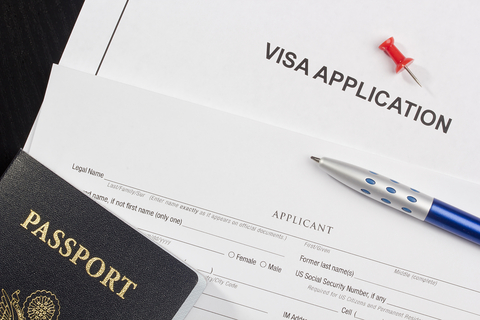
You may have done everything in your power to abide by the strictly enforced application guidelines and build a strong case for your eligibility to retrieve a United States visa. So you may feel depleted and discouraged if this long and extensive process ultimately results in a denial by the United States Citizenship and Immigration Services (USCIS). However, you may rest easier knowing this may not have been your only shot. Continue reading to learn what happens if your visa application gets denied and how an experienced waivers of inadmissibility attorney in Wisconsin, at Sesini Law Group, S.C., can help you get a second chance at legal entry into the United States.
What happens if my visa application gets denied?
At your final interview at a United States embassy or consulate, your interviewer, a USCIS officer, may get the final say on whether your visa application should get approved or denied. If they ultimately rule to deny you a visa, you hold the right to ask for their reasonings.
With this, one reason the USCIS officer might give you is that you seem to fall under one of the inadmissibility or ineligibility grounds for United States citizenship. For instance, they may be under the belief that you were previously convicted of a crime involving moral turpitude or a drug conviction. So if this is the explanation you received, then you may also hold the right to file a waiver on the grounds of inadmissibility; otherwise known as Form I-601.
How can I apply for a waiver on the grounds of inadmissibility?
First of all, you must file Form I-601, your waiver on the grounds of inadmissibility, with the United States Department of Homeland Security (DHS). Also worth mentioning, you must pay a nonrefundable filing fee of $930. Unfortunately, this must be in addition to the filing fee you paid for your initial visa application, which was also nonrefundable.
Also alongside your Form I-601, you must submit evidence that establishes why you qualify for this waiver in the first place. Now, the evidence you require may be dependent on which grounds of inadmissibility the USCIS officer stated at your final interview.
For example, if you were denied a visa due to medical reasons, you must submit additional pieces of medical documentation. Such medical documentation may show that you have received all your required vaccinations, you have attended and passed all your required medical examinations, or otherwise, it may disprove any other reasoning that you were given.
You must understand that there is no guarantee that the DHS will approve your waiver, but it always helps to completely dedicate yourself to its success. So even if you are only considering a waiver of inadmissibility, you must first consult a skilled family immigration lawyer in Milwaukee, WI, from Sesini Law Group, S.C. Contact our firm today.
